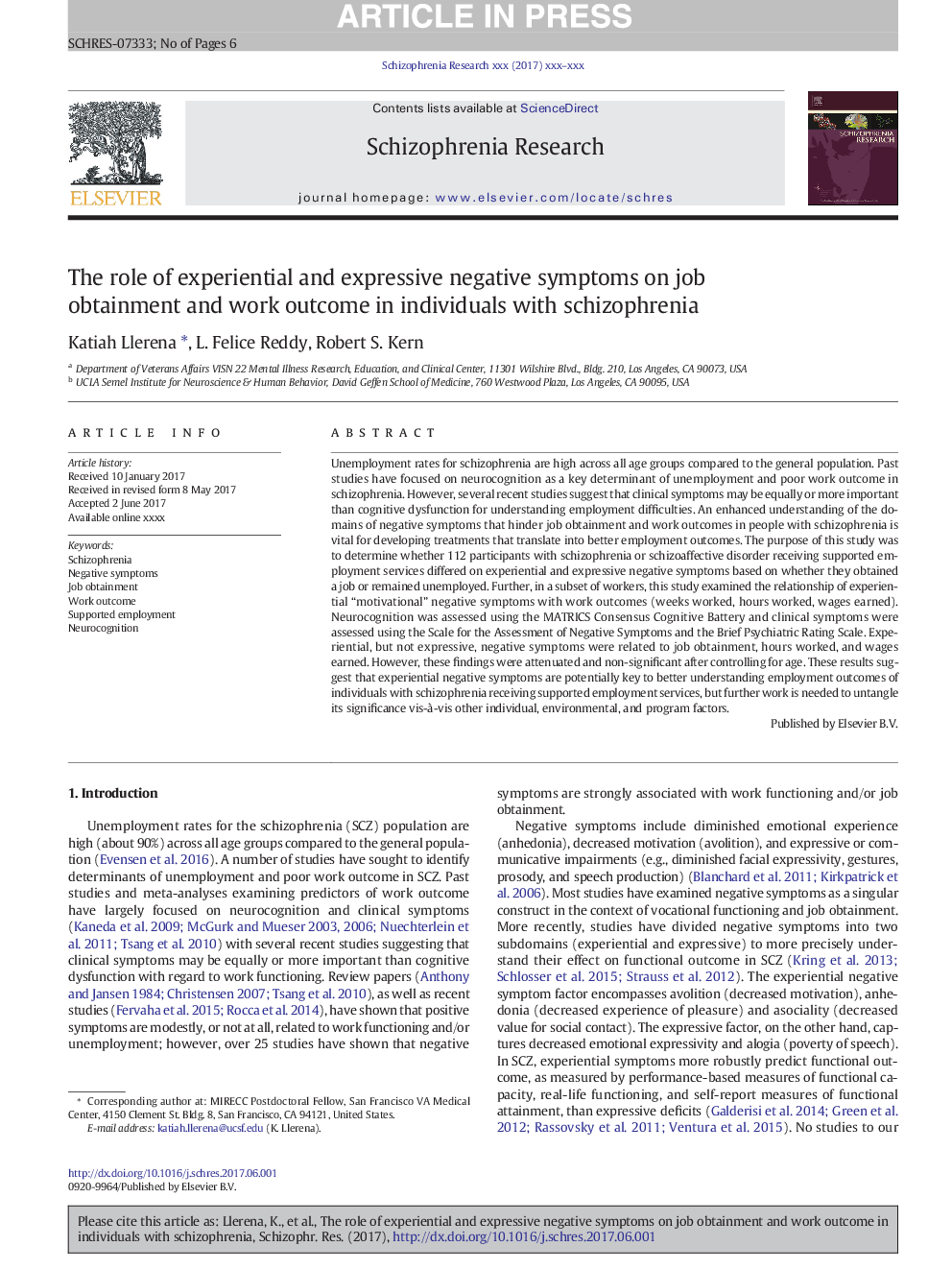ترجمه فارسی عنوان مقاله
نقش علائم منفی تجربی و بیانگر بر شغل و نتیجه کار در افراد مبتلا به اسکیزوفرنی
عنوان انگلیسی
The role of experiential and expressive negative symptoms on job obtainment and work outcome in individuals with schizophrenia
| کد مقاله | سال انتشار | تعداد صفحات مقاله انگلیسی |
|---|---|---|
| 161314 | 2018 | 6 صفحه PDF |
منبع

Publisher : Elsevier - Science Direct (الزویر - ساینس دایرکت)
Journal : Schizophrenia Research, Volume 192, February 2018, Pages 148-153
ترجمه کلمات کلیدی
جنون جوانی، علائم منفی، استخدام شغلی، نتیجه کار، اشتغال پشتیبانی شناخت عصبی،
کلمات کلیدی انگلیسی
Schizophrenia; Negative symptoms; Job obtainment; Work outcome; Supported employment; Neurocognition;

